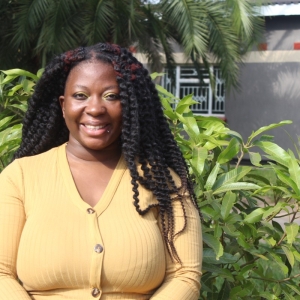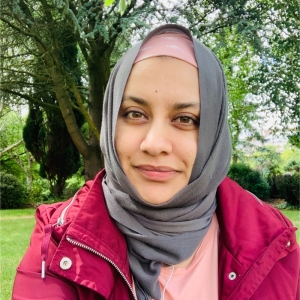Why we participated in the Global Days of Action Campaign
As countries grapple with the unprecedented polycrisis and continue to explore possible strategies to build back transformatively and sustainably, Akina Mama wa Afrika (AMwA) joined the Global Alliance for Tax Justice (GATJ) in a collective call for wealth taxes during the 7th annual Global Days of Action for Tax Justice. This is in recognition that addressing existing inequalities requires that we contend with the harrowing effects of the current neoliberal capitalist system that increasingly creates an enabling environment for the rich to exploitatively accumulate wealth at the expense of people and the planet.
The current reality is that, while Africa loses approximately 88.6 billion US Dollars from Illicit Financial Flows per annum, Billionaire fortunes are increasing by $2.7bn a day even as inflation outpaces the wages of at least 1.7 billion workers. This only indicates the failure of tax policies to redistribute wealth, promote equity and mobilize public finance to promote social wellbeing, and thus justifies our call for wealth taxation.
AMwA and some members of the GATJ Gender and Tax Working group kicked off the GDOA by convening a parallel event at the 67th UN Commission on the Status of Women (CSW) under the theme ‘Digital Frontiers for Feminist Tax Justice’. The discussion sought to provide a feminist perspective into the current conversation around tax challenges arising within the digitization era. Among many profound submissions, there was a collective concern that there is a negative and significant relationship between tax evasion and digitalization as adopted by businesses and people. Although digital taxation is a progressive step, there is a need for African countries to restructure their administration systems because they are currently underdeveloped, hence creating loopholes for massive tax evasion. Countries like Uganda have adopted this approach with the EFRIS system to address tax administration challenges relating to business transactions and issuance of receipts. However, the system only targets companies that are registered in Uganda, forgetting digital companies that operate in the country but are registered elsewhere like Facebook, Amazon, Google.
In alignment with this year’s UNCSW67, AMwA also collaborated with the Nawi – Afrifem Macroeconomics Collective and Policy in a conversation on ‘Reimagining a Feminist Digital Revolution Innovation and Education’. Digital technologies have the potential to accelerate efforts for advancing women’s rights, but can also deepen and perpetuate pre-existing inequalities. During the webinar, Eunice Musiime, the Executive Director of AMwA urged us to interrogate whether the digital solutions being advanced are providing transformative solutions or simply false solutions. We must therefore explore opportunities for African women and girls to be at the frontline of developing digital technologies and center the digital revolution on feminist digital governance.
As an organization that believes in the power of knowledge in transforming societies and the regressive systems, we joined Tax Justice Network and Tax Justice Network Africa as they launched two fundamental reports. The two reports which show who owns what, where and how in Africa and Latin America seek to examine the commitments of all African countries to beneficial ownership transparency as an approach to help in the fight against illicit financial flows. During the launch event, speakers indicated that governments are aware that Beneficial Ownership Transparency is a powerful tool to combat money laundering and tax abuse, but even in countries that have implemented strong frameworks, there are still extensive loopholes. It was further indicated that absence of Beneficial Ownership Transparency may have helped facilitate the capture of state resources and minerals by politically connected elites, and the theft of funds meant for responding to the COVID-19 pandemic.
The growth of the digital economy as a key source of employment has facilitated the growth of the gig economy. Governments and MNCs have argued in favor of the independence and flexibility offered by the ”gig” economy, particularly for women workers. However, this has only worked to mask working conditions of precarity, low pay, long hours, lack of access to social protection, denial of rights to unionize, algorithmic bias, gender-based violence, and lack of accountability that are predominant in the digital economy. As the “gig” economy rapidly evolves with both opportunities and significant challenges for women and their economic rights, it has drawn the attention of feminists, trade unions, and other social justice activists due to the limited regulation owing to the digital nature of the employer(s). During CSW 67, AMwA, Action Aid, DAWN, and APWLD hosted an event titled “Opportunity or exploitation? Feminist perspectives on women’s rights and the gig economy” that sought to explore these critical issues and themes, with feminist activists and experts from around the globe to share experiences, perspectives, policy implications, and examples of how women gig workers are organizing to protect and demand their rights.
Finally, we joined the Action Aid in Malawi in a conversation hosted under the auspices of the Feminist Macro-Economics Alliance Malawi around the regressive nature of Malawi’s tax systems and the impacts on women and other marginalized groups of people. The space was convened to share findings of a paper written and revised by young women, for young women. During the event, Jessica Mandanda, a member of the Young Urban Women’s Movement and the Feminist Macro-Economics Alliance-Malawi, argued that “the global tax system is not designed to empower, lift or develop us. Its language is so technical that you shouldn’t understand it”. While discussing the interconnectedness of crisis to the issues of tax justice, Pamela Kuwali the Executive Director of ActionAid noted that “the impact of Tropical Cyclone Freddy has exposed gaps in our structures and demonstrated how urgently we need progressive tax systems to guarantee public resource mobilization and allocation for disaster preparedness and management, and effective public service delivery.”
What’s next for us?

As we round up Women’s Month, we are launching a podcast titled “Feminist perspectives on wealth taxes”. In this podcast, 3 feminists in conversation share their thoughts on the urgent need to return to the values of Ubuntu. Our call to return to Ubuntu is a call to promote a community-centric ethos where those who are more able than others pay more than those who are least able. Governments must therefore transform the current system and ensure that the ultra rich pay their share of taxes. To unpack this, Joanita Najjuko, the Economic Justice and Climate Action Programme Officer at AMwA takes on the conversation with Prof. Lyla Lattif, a legal practitioner, international consultant, an academic and the Chief Executive of Lai’Latif & Co Advocates and Jessica Mandanda, an Advocacy Communications Specialist with core expertise in Economic Justice and Rights. In this podcast, the conversationalists share their insights on why and how governments, particularly in the Global South should adopt wealth taxes and curb Illicit Financial Flows (IFIs) in order to raise sufficient revenues to finance Africa’s ever increasing development needs. We invite you to stay tuned as we continue to share more information on this critical topic.
Part 1: Exploring Feminist perspectives on Wealth Taxes
Part 2: Exploring Feminist perspectives on Wealth Taxes
About the Speakers
Jessica Mandanda

Jessica Mandanda is an Advocacy Communications Specialist with core expertise in Economic Justice and Rights, holding over 5 years’ experience in development communications, campaigning and policy analysis for the gendered impact of macroeconomic policy level environment in Africa. Her experience includes analyzing and presenting the Gendered impact of Austerity measures on public service delivery, and campaigning for an Economy that works for women, regionally and internationally, including the IMF Spring Meetings (2022), and the International Association for Feminist Economics (IAFFE) 2021, the SADC Regional Dialogue (2021), and the Africa Gender Equality Conference (2021). She is an alumnus of the Feminist Economics Summer School (Institute for Economic Justice), African Macroeconomics Academy Malawi (AFMA-Malawi) and a member of the Feminist Macroeconomics Alliance Malawi, where she provides strategic advisory on communications and campaigning for Economic Justice and Rights. Her research areas include Decoloniality and Decolonization of African Women’s Bodies through specialized Gender and Feminist Economic audit of the Public Health system, and feminist analysis on the Malawian Tax Regime and the overlying impact on Young Women’s lives. She holds a Bachelor’s Degree in Journalism and Mass Communication, a Post Graduate Diploma in International Gender Studies and is currently finishing her Master’s Degree in Public Advocacy and Activism.
Lyla Latif

Lyla Latif is a legal practitioner, international consultant and an academic. As the Chief Executive of Lai’Latif & Co Advocates, she has strategically positioned her law firm as a leader in multiple areas of tax and law, including setting up a philanthropy wing to support underprivileged women from low-income households with zakat (the Islamic wealth tax). She is currently a board member of Tax Justice Network, and the International Lawyers Project. As a member of the inaugural Tax Law Committee of the East Africa Law Society, she informs and shapes East Africa’s tax doctrine and practice, and also reviews the state and operation of tax law in the region. Lyla Latif is an expert trainer with Capabuild; Rotterdam’s premier tax capacity building organization, focusing on training revenue authorities in Botswana and Indonesia and the Tax Appeals Tribunal of Kenya on emerging international tax norms and rules. She is the Chair and co-founder of the Committee on Fiscal Studies, an academic think tank dedicated to the reform and strengthening of tax systems in the global south generating research needed for knowledge transfer, policy advocacy, capacity building and tax training. With a keen interest in promoting transparency and accountability in financial flows and contracts, Lyla Latif combines traditional Islamic jurisprudence (fiqh) with modern socio-legal scholarship to provide innovative solutions to complex legal and financial challenges.
About the host —Joanita Najjuko

Najjuko Joanita, is a Pan-Africanist and feminist activist. She currently works with Akina Mama wa Afrika as the Programme Officer- Economic Justice and Climate Action, where her work is premised on the intersection of economic exploitation and gender oppression and its implication for the achievement of broader womens’ rights. Najjuko holds a Bachelor of Laws Degree from the Makerere University School of Law and a Postgraduate Diploma in Legal Practice. Drawing from her legal background, Najjuko is dedicated to being an agent for social change and transformation, advocating for change in small and big ways. Najjuko is passionate about building and organizing sustainable development models that center the needs of communities across Africa.